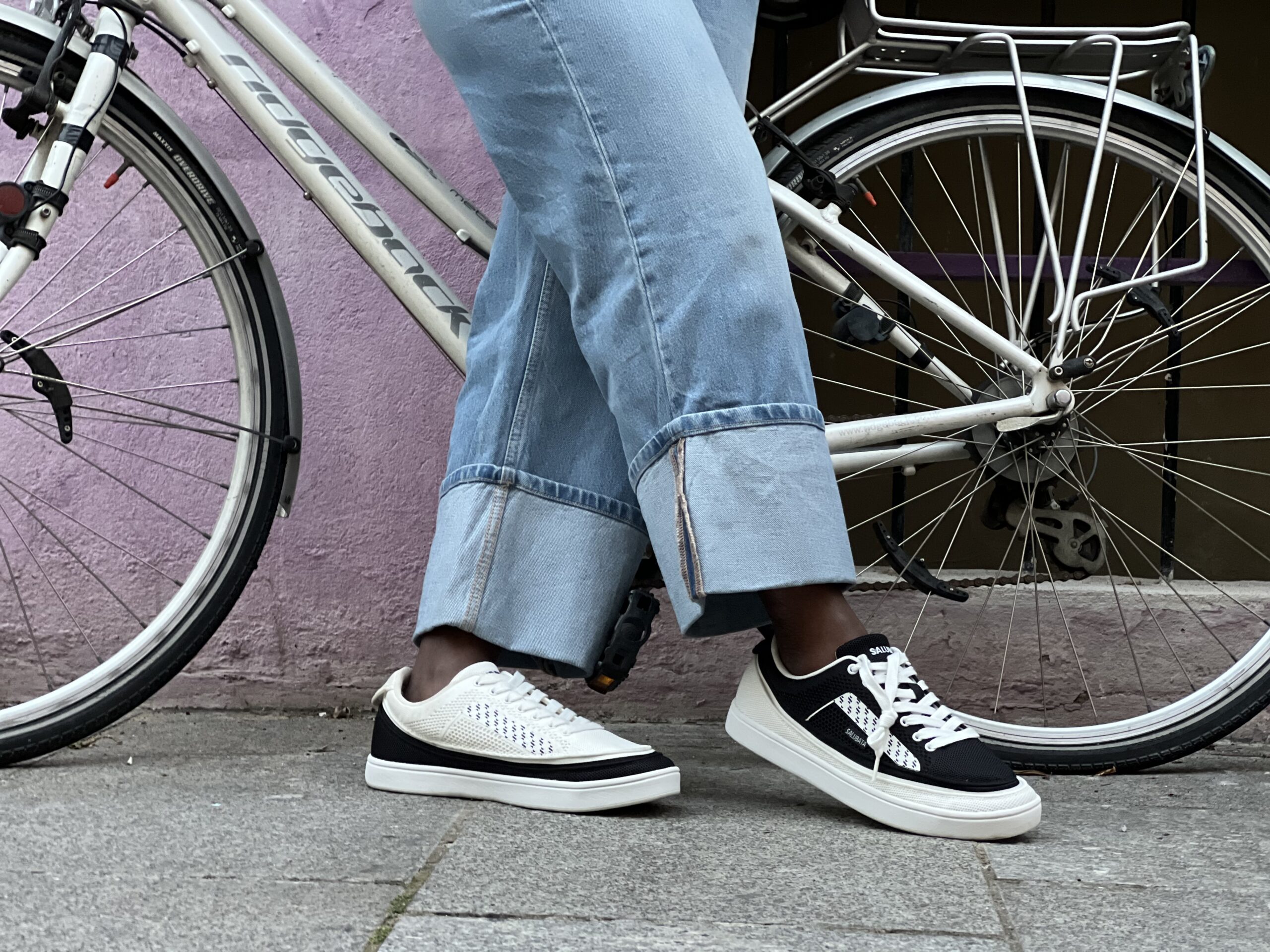How One Nigerian Enterprise is Tackling the Global Plastic Plague, One Shoe at a Time
In Nigeria, a country increasingly threatened by flooding due to climate change, YouthADAPT Solutions Challenge winner Salubata is helping unclog waterways by converting plastic waste into affordable footwear
I
n Nigeria, plastic pollution poses a significant environmental challenge, impacting communities by clogging drainage systems and contributing to flooding and health problems.
About 90 percent of plastic waste in Nigeria is not recycled, and this has resulted in over 5 trillion items of plastic floating in canals and oceans.
Salubata is a Nigerian shoe design and manufacturing company that seeks to tackle this pressing issue by converting plastic waste into affordable footwear, simultaneously generating income and reducing waste.
The company uses recycled plastic taken out of waterways and the sea as raw material to make shoes.
Salubata helps to unclog drainage systems in a country that due to climate change is increasingly threatened by flooding and last year experienced the worst flooding in at least a decade, with a death toll of 600 people and nearly 2.8 million affected.
Salubata also aims to reduce the global carbon footprint by avoiding the need for newly produced plastic.
“Thus far, we have sold over 6,000 pairs of shoes, and these shoes are made from recycled plastic waste and our net offset is about 145.9 kilograms of CO2 per shoe,” said Salubata co-founder Yewande Adebowale.
In 2021, Yewande became one of 15 young African entrepreneurs to win the first edition of the African Youth Adaptation (YouthADAPT) Solutions Challenge. With a strong focus on supporting women-led businesses, the YouthADAPT Challenge is an annual competition organized jointly by the African Development Bank (AfDB), Climate Investment Funds (CIF), and the Global Center on Adaptation (GCA) as part of the Africa Adaptation Acceleration Program (AAAP).

Every winning enterprise receives a grant of US $100,000 to expand their solutions and gets to participate in a 12-month business accelerator program designed to help their companies grow, maximize their impact, and generate employment opportunities.
Yewande, who used to be an environmental lawyer, explained how, together with Salubata’s CEO, Fela Akinse, she conceived the vision of Salubata:
“The drainages are choked with plastic bottles and with waste. So whenever it rains, Lagos is always flooded. We started imagining how we could solve this problem – and the plastic plague is not just limited to Lagos; it is a global problem. So we started imagining how we could use our lifestyles to solve the global plastic plague,” said Yewande.
Salubata also tackles potential health problems caused by water waste. So far, Salubata has processed 1 million tons of plastic waste.
“We are aware of the downhill effects of these pollutants and how they affect the people in underserved communities the most, so we have a program and initiatives aimed at supporting women in local communities,” Yewande said.
The company works with around 50 waste collectors, including a group of women who sweep roads and collect empty plastic bottles to sell to Salubata’s recycling partners per kilogram.
Salubata operates under the principle of “one sole fits all,” which makes the company energy efficient.
“In shoe manufacturing, 70 percent of energy goes into manufacturing soles. Because at Salubata, one sole fits many uppers, we are energy efficient, thereby reducing the cost…We are not only sustainable and circular, we are energy efficient,” noted Yewande.
Salubata shoes are modular, meaning that each shoe has a base and many uppers of different colors can be purchased and attached to this base. Yewande explained that the YouthADAPT funds helped them obtain a global patent on their innovation.

YouthADAPT has also helped Salubata increase its production capacity from 100 to more than 500 shoes per month, Yewande said.
Salubata aims to expand beyond Nigeria, and already has a presence in Europe and North America.
“We consider ourselves a global company,” Yewande said, adding that their shoes can be purchased online and are delivered around the world.
“A platform like this, an opportunity like this YouthADAPT Initiative, it’s a life-changing one. I would encourage young African entrepreneurs to apply for the YouthADAPT Challenge, and who knows, they may be selected. And I would also encourage them to keep on keeping on because entrepreneurship is hard. That’s the truth,” said Yewande.
The AAAP, launched jointly by GCA and the AfDB aims to mobilize US $25 billion for adaptation investments in Africa in the next five years. This Africa-led, Africa-owned initiative has the support of the African Union and African leaders, and focuses on food security, resilient infrastructure, adaptation jobs and climate finance. GCA’s AAAP Upstream Financing Facility incorporates the latest in climate adaptation science and solutions into programs across Africa. In its 24 months of operation, the Upstream Financing Facility has influenced more than $5.2 billion in downstream investments with Multilateral Development Banks in 27 African nations.
The ideas presented in this article aim to inspire adaptation action – they are the views of the author and do not necessarily reflect those of the Global Center on Adaptation.